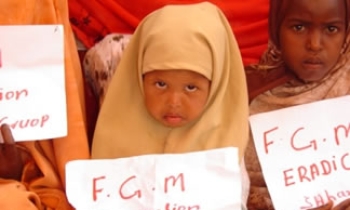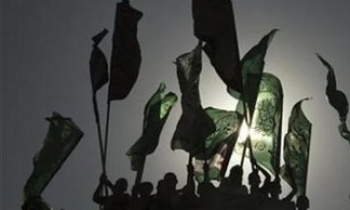Akbar Ganji, a leading investigative journalist who is now one of Iran's most renowned political prisoners, has been awarded the 2006 Golden Pen of Freedom, the annual press freedom prize of the World Association of Newspapers (WAN).

Ganji, who is serving the fourth year of a six-year prison sentence, is the author of the book "Dungeon of Ghosts," in which he implicated former president, Akbar Hashemi Rafsanjani, and other leading conservative figures in the murders of five writers and intellectuals in 1998. The book is said to have been a major factor in the conservative defeat in parliamentary elections of February 2000.
Ganji has reportedly been tortured in prison and has gone on two long hunger strikes. He has refused to renounce his critique of the state, even if it could win his release. In a letter recently smuggled out of prison, he wrote: "Let it be known that if learning my lesson is to denounce my previous opinions, Ganji will never learn his lesson."
Ganji was arrested in April 2000 following his participation in a Berlin conference in which political and social reform in Iran were publicly debated. He was sentenced to six years in prison in 2001 for "insulting religious edicts and figures, threatening national security and dissemination of propaganda against the Islamic system."
The Golden Pen award, which will be presented on Monday, June 5, 2006, at the World Newspaper Congress and World Editors Forum in Moscow, Russia, recognises Ganji's outstanding defence and promotion of press freedom.
"Akbar Ganji fights for freedom of expression in Iran but his efforts are watched around the globe," said the Board of the Paris-based WAN, meeting in Copenhagen, Denmark. "His remarkable resistance to repression and his steadfast refusal to be silenced, at great personal cost, is an inspiration to journalists everywhere. It is through courageous journalists who do not capitulate � even in the face of long prison terms and even death � that freedom advances." The Board called for his immediate release.

Ganji was originally sentenced to ten years in prison plus five years of internal exile, but the sentence was reduced to six months imprisonment on appeal. The country's Supreme Court, however, overturned the appellate court's decision and referred the case to a different appeals court, which sentenced him to six years in prison.
On May 19 this year, Ganji began a hunger strike that lasted for almost three months. He was granted prison leave for medical treatment at the end of May and used the opportunity to call for a boycott of the June 17 presidential election. He resumed his hunger strike for two months when he returned to prison, ending up in hospital due to malnutrition and poor health. He had lost more than 25 kgs. He ended the hunger strike and on September 3, was discharged from hospital and returned to prison, where he remains today.
WAN, the global association of the newspaper industry, has awarded the Golden Pen annually since 1961. Past winners include Argentina's Jacobo Timerman (1980), South Africa's Anthony Head (1986), China's Dai Qing (1992), Vietnam's Doan Viet Hoat of Vietnam (1998), Zimbabwe's Geoffrey Nyarota (2002), and Uzbekistan's Ruslan Sharipov (2004). The 2005 winner was journalist Mahjoub Mohamed Salih of Sudan.
The Paris-based WAN, the global organisation for the newspaper industry, defends and promotes press freedom worldwide. It represents 18,000 newspapers; its membership includes 72 national newspaper associations, individual newspaper executives in 102 countries, 10 news agencies and nine regional and worldwide press groups.









